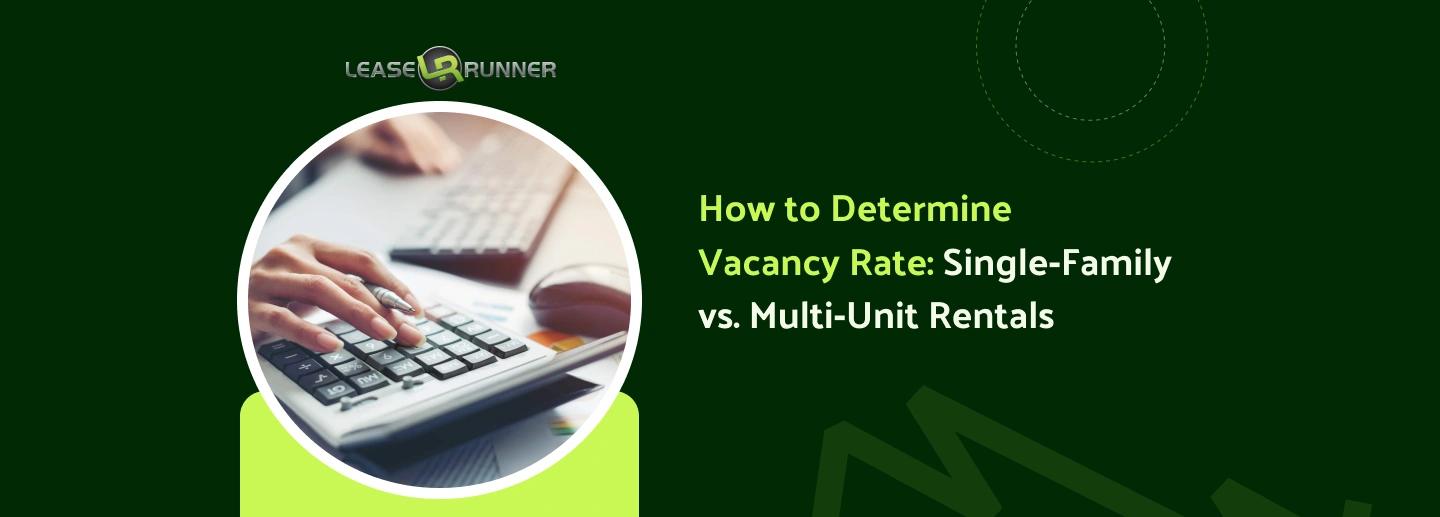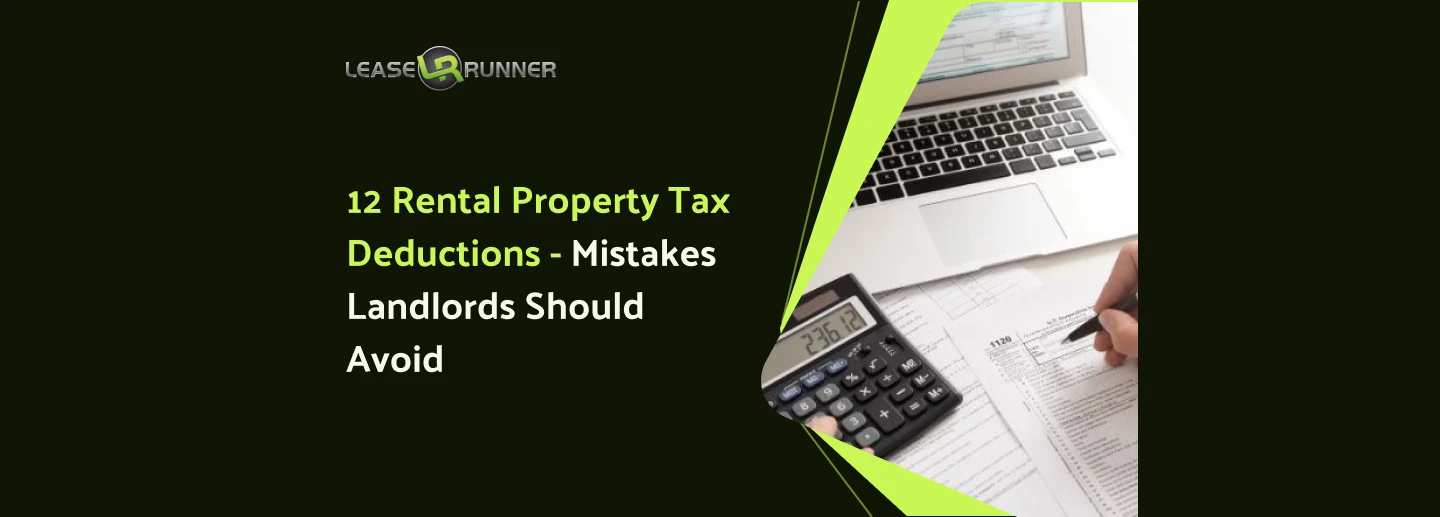Which state has no property tax in the U.S.? The short answer is: no U.S. state completely eliminates property tax. Property taxes are collected at the local level, but some states come very close by maintaining very low effective property tax rates or offering exemptions that significantly reduce annual tax bills.
For homebuyers and landlords, this distinction matters. A “no property tax” state does not always mean lower overall housing costs. Many states offset low property taxes with higher sales taxes, income taxes, or local fees. Others provide exemptions that benefit owner-occupied homes but do not apply to rental properties.
In this guide, we’ll explain what “no property tax” really means, highlight 10 states with the lowest property taxes in 2025, and help homeowners and landlords understand how these tax structures affect long-term housing and rental costs.
What Is Property Tax?

Property tax is a recurring fee that homeowners pay to local governments, typically on an annual or semi-annual basis. It is calculated based on the assessed value of your property, which reflects several factors.
These factors include the home’s size, location, age, condition, and recent sale prices of similar homes nearby. For example, a large house in a high-demand neighborhood will have a higher assessed value than a smaller home in a less popular area, resulting in higher property taxes.
Local tax assessors determine the assessed value by evaluating these aspects and adjusting values periodically, often yearly or every few years. Knowing your property’s assessed value helps you understand how much you can expect to pay in taxes.
Property tax revenue supports vital public services in your community. These include funding for schools, which help educate local children, emergency services like fire and police departments, road and infrastructure maintenance, and public parks.
Without this funding, communities would struggle to provide these essential services that support residents' safety, education, and quality of life. Unlike the one-time cost you pay when purchasing a home, property tax is ongoing. It typically appears as a separate bill, and missing payments can lead to penalties or even liens on your property.
Since it is charged regularly, property tax plays a major role in your total cost of homeownership. Understanding how property taxes work can help you budget for these costs, especially when comparing homes in different states or cities.
If you want to save money, researching states with the lowest property taxes or states with no property tax policies can make a big difference in your long-term housing expenses.
Why Is Property Tax Important for Homebuyers and Renters?
Property taxes can have a big impact on both homebuyers and renters, yet many overlook this when considering housing costs. For homebuyers, property taxes are part of the ongoing expenses of owning a home.
Even if a home’s price seems affordable, high property taxes in certain areas can add thousands of dollars annually to your costs. Since property taxes are calculated based on assessed value and local tax rates, the same home can have very different tax bills depending on the region.
For example, homes in states or cities known for states with the highest property taxes (like New Jersey (with an effective rate of over 2%), Illinois (around 1.95%), or Connecticut (around 1.78%)) can feel costly despite reasonable purchase prices. Renters feel the effects too. Although renters don’t pay property taxes directly, landlords usually include these expenses in the rent.
So, in places with high property taxes, rental prices tend to be higher. Understanding how property taxes affect rent helps renters weigh local market costs and evaluate the true cost of owning or renting property, beyond just purchase price or monthly rent.
Ignoring property taxes when buying or renting can lead to unexpected financial strain. When comparing homes, look beyond the sale price or monthly rent. Include estimated property tax costs based on the area.
Researching states with the lowest property taxes or neighborhoods with houses with low property taxes can help make housing more affordable over time. Being aware of property tax differences is essential for smart, cost-effective housing choices.
States With the Lowest Property Taxes vs. “No Property Tax” States
States with the lowest property taxes are not the same as states with no property tax. In the U.S., property taxes are collected at the local level, which means no state completely eliminates them. What people often call “no property tax” states are actually states with very low effective property tax rates.
However, low property taxes do not automatically mean lower overall housing costs. States that collect less revenue from property taxes often rely more on other forms of taxation, such as higher sales taxes, income taxes, or local fees, to fund public services.
For homeowners, states with low property taxes can reduce annual ownership costs, especially when combined with homestead exemptions for primary residences. For landlords and rental property owners, the picture can look very different. Most exemptions apply only to owner-occupied homes, meaning rental properties may not receive the same tax benefits. As a result, expected savings from low property taxes may be smaller than anticipated, particularly when higher sales or income taxes are factored in.
10 U.S. States with No Property Taxes in 2025
Although no U.S. state completely eliminates property taxes, some states consistently rank among those with the lowest effective property tax rates. These states keep property taxes low through favorable assessment methods, exemptions, or tax caps, making them attractive for homeowners looking to reduce long-term housing costs.
This list will show you ten states popular for their low property taxes. We'll look at their tax rates, how tax-friendly they are, and why people like to buy homes there. Before diving into each state, here’s a quick look at how they stack up when it comes to property tax rates, overall tax friendliness, and homebuyer appeal:
1. Hawaii
Hawaii has low property taxes due to a mix of rules. The law limits how much counties can raise assessed values each year. Counties cannot raise assessed values by more than 5% annually. The state also offers great exemptions.
The main exemptions are the general exemption and the homestead exemption for homes you live in. A general exemption applies to all properties. However, a homestead exemption is for your primary home and can greatly lower your tax bill. In Honolulu County, the homestead exemption is around $120,000 to $160,000.
Homestead exemption amounts in Hawaii are set at the county level and may change over time. Homeowners should check the latest exemption thresholds in their specific county, as updated values can vary year to year.
In Hawaii County, it's $40,000. This is a huge help for homeowners. The trade-off is a very high cost of living. Being on an island makes everything from food to electricity more expensive. Also, the job market is often limited to tourism.
Pros:
- Lowest property tax rate in the U.S.
- Strong homeowner exemptions & assessment caps
Cons:
- Extremely high home‑purchase and living costs
- Geographic isolation (expensive flights, limited markets)
Best For: High-earners or retirees who love island living and can handle the high cost of things besides housing.
2. Alabama
Alabama has one of the lowest tax burdens in the country. The state's effective property tax rate is very low, which is great news for homeowners. In Alabama, there are no big differences in tax rates between counties. While Alabama uses a consistent statewide assessment structure, some counties may offer additional local tax relief programs or adjustments that affect the final property tax bill.
The state offers a few exemptions that help you lower your taxes even more. The main one is the homestead exemption. This applies to all primary homes and lowers the taxable value of the home. This exemption helps a lot of people, especially first-time homebuyers and retirees.
Pros:
- Very low property taxes and overall cost of living
- Mild winters and rich Southern culture
- Affordable housing market for first‑time buyers
Cons:
- Below‑average incomes and uneven job growth
- School quality varies widely by county
Best For: First‑time homebuyers, retirees, and those seeking maximum affordability.
3. Nevada
Homeowners in Nevada have a much lower tax burden than in most other states. In recent years, Nevada’s average property tax bills have remained well below the national average, reflecting its relatively low effective property tax rates. The average annual property tax bill in 2023 was only $1,889.
However, each county sets its own tax rate. Nevada offers exemptions for certain groups. For example, veterans, disabled people, and surviving spouses can get a tax exemption. This helps them save even more money. With Las Vegas and Reno growing in jobs and entertainment, there is a lot to do.
The median home value is around $446,700. Because the property tax rate is so low, your home’s value does not hurt your wallet as much as it would in other places.
Pros:
- No state income tax
- Low property tax rate (0.55%)
- Plenty of sunshine and warm weather year-round
- A growing job market and a vibrant entertainment scene
Cons:
- A desert climate may not be for everyone (hot summers)
- Limited water resources
- Property prices are rising, particularly in popular areas like Las Vegas
Best For: Anyone interested in the entertainment and tech hubs of Nevada.
4. Colorado
Colorado caps how much residential assessments can go up. They cap them at 7.15% of market value and limit how much they can increase each year. Colorado’s residential assessment rates and caps are subject to legislative updates, so homeowners should review the most recent assessment rules when estimating long-term property tax costs.
But quick growth has made housing more expensive. It has also raised concerns about wildfires and water. Colorado offers a few exemptions. The most notable is the senior exemption. This allows people 65 and older to get a lower tax value on their home. This makes it a great state for retirees.
Pros:
- Thriving tech, aerospace, and renewable‑energy sectors
- Stable assessment caps protect homeowners
Cons:
- High home prices and rising cost of living
- Traffic congestion around Denver/Boulder
Best For: Active professionals and families who prioritize outdoor access and a strong job market.
5. South Carolina
South Carolina has a low effective tax rate. It's only 0.47% on a median home worth around $300,000. South Carolina’s effective property tax rate is among the lowest in the U.S., typically falling within the lower range compared to national averages, though actual bills vary by location and property value.
The state has a growing economy, especially in tourism and manufacturing. This is good for people looking to buy houses with low property taxes. The tax rates are mostly stable across the state, with no big differences between counties.
Pros:
- Homestead exemptions lower taxes further for primary residences
- Warm climate, beaches, and golf communities
Cons:
- Hot, humid summers
- Variable school quality outside major metros
Best For: Retirees, families, and golf/beach enthusiasts seeking low‑tax living.
6. Arizona
Arizona has one of the best property tax systems in the country. The taxes are low, which means very manageable annual bills. This tax benefit is even better for retirees. The state has an exemption for Social Security income.
This makes Arizona a good place for people who want to make their retirement money go further. The tax rates are generally the same across all counties, with minor differences.
Pros:
- No tax on Social Security benefits
- Rapidly expanding healthcare, tech, and manufacturing sectors
Cons:
- Extreme summer heat and persistent drought
- Widespread urban sprawl and increasing commute times
Best For: Retirees, winter residents, and families seeking warm weather.
7. Delaware
The average yearly property tax bill in Delaware is only around $1,600 - $1,700. This makes Delaware a great choice for both retirees and families looking to save money. Also, Delaware has no sales tax. This is a huge win for anyone trying to cut costs. The tax rates are consistent across all counties.
The state offers a tax credit for seniors aged 65 and older. This makes it an even more appealing place to retire. This is one of the states with the lowest property taxes.
Pros:
- No state sales tax
- Affordable home prices compared to the surrounding states
- Convenient access to major metro areas
Cons:
- Smaller job market than neighboring states
- Some rural areas may lack amenities
Best For: Retirees looking for tax relief and families who want affordability.
8. Idaho
Idaho keeps its reputation for affordable living through a tax system that keeps rates well below the national average. This is true even as demand for homes grows. The state has a mix of small-town feel and modern living. Property tax rates are stable across all counties.
The state offers a homeowner's exemption, which reduces the taxable value of a primary home and only around $125,000. This makes it a great place to find houses with low property taxes.
Pros:
- Great for outdoor activities
- Low taxes, especially for retirees
- New opportunities in tech and business
Cons:
- Rising home prices in popular areas
- Limited services in rural towns
Best For: People who want an active lifestyle close to nature and don’t mind colder winters.
9. Utah
Utah has a low and stable property tax rate, making it a great place for homeowners to manage their costs over time. The state's effective property tax rate is very low, ranging from around 0.47% to 0.55%. This is true even in fast-growing cities like Salt Lake City.
The state is growing fast with tech jobs and startups, which is why it is often called "Silicon Slopes." Property tax rates are similar in all counties. Utah has a homeowner's exemption that lowers the taxable value of a primary home. This is great for new homebuyers.
Pros:
- Strong job growth in tech and business
- Safe and family-friendly communities
Cons:
- Air pollution in the winter
- Socially conservative culture
Best For: Young professionals and families who want both career options and outdoor living.
10. West Virginia
Finally, West Virginia has some of the lowest property taxes and housing costs in the U.S. It is surrounded by forests, rivers, and mountains. This makes it perfect for people who love the outdoors. The state is seeing some growth as remote workers look for peaceful, affordable places to live.
The Tax Foundation states that West Virginia's effective property tax rate on owner-occupied housing is 0.48%, making it one of the lowest in the country. The state offers a homestead exemption for homeowners who are 65 or older or are permanently and totally disabled.
This exemption makes the first $20,000 of a home's assessed value exempt from property tax. Additionally, the West Virginia Legislature has a bill (SB 266) proposing to increase this exemption from $20,000 to $40,000, further demonstrating the state's commitment to providing tax relief for seniors.
The state's tax rates are generally consistent, with no large county-to-county differences. This makes it a great state for retirees.
Pros:
- Very low taxes and cost of living
- No sales tax on groceries
Cons:
- Fewer high-paying job options
- Some towns lack modern services
Best For: Retirees, remote workers, and nature lovers who want low costs and a quiet lifestyle.

Are Any States Exempt From Property Taxes?
No U.S. state is fully exempt from property taxes. This is a common misconception.
What often creates confusion is the difference between eliminating property taxes and offering exemptions. Many states provide exemptions that reduce the taxable value of a property—especially for primary residences, seniors, veterans, or disabled homeowners. These exemptions can significantly lower the effective property tax rate, but they do not remove property taxes entirely.
For landlords, this distinction is critical. Most exemptions apply only to owner-occupied homes, meaning rental properties usually remain fully taxable even in states considered “tax-friendly.”
How Are Property Taxes Calculated in Low-Tax States?
Property taxes vary significantly across the U.S., depending on state and local policies. Understanding how taxes are calculated helps homeowners and buyers choose locations wisely, especially if looking for a state with no property tax or among the states with the lowest property taxes.
1. Assessed Value
The assessed value is the appraised worth of your property as decided by the local tax assessor. It usually differs from the market value. Some states reassess properties annually, while others do so less frequently.
For example, in Texas, the assessed value is updated yearly, which keeps taxes aligned with market trends. Knowing your assessed value is vital because it forms the starting point for your tax calculation.
2. Assessment Ratio
The assessment ratio is the percentage of your property’s market value that is taxable. Some states tax 100% of assessed value, while others apply a lower ratio.
For instance, New York uses different assessment ratios by county, sometimes as low as 20%, reducing the taxable base for homeowners. This ratio can greatly affect your final tax bill.
3. Local Tax Rate
Local governments, including counties, cities, and school districts, set property tax rates, usually expressed as millage rates (amount per $1,000 of assessed value).
These rates vary widely, which explains why some places have houses with low property taxes despite high property values. For example, Hawaii has relatively low local tax rates that keep overall property taxes modest.
4. Calculation Formula
Property tax = Assessed value × Assessment ratio × Local tax rate.
Suppose a home is assessed at $300,000, the assessment ratio is 30%, and the tax rate is 2%. The property tax would be $300,000 × 30% × 2% = $1,800 annually. Understanding this formula allows you to estimate taxes when comparing different locations.
5. Exemptions and Appeals
Many states offer exemptions that reduce the taxable value for qualified homeowners, such as homestead or senior exemptions. Filing appeals can also lower an unfair assessment.
For example, Florida provides homestead exemptions that can cut taxable value by up to $50,000. It’s smart to check local exemptions and learn how to challenge assessments. For investors, understanding rental property tax deductions can also ease your tax burden.
Streamline your rentals with LeaseRunner today — no setup fees, no surprises. 

Save More Than Just Taxes
5 Ways to Minimize Your Real Estate Tax Bill
Property tax bills can be hefty, but homeowners can explore legal ways to reduce their payments.
1. Claim Homestead Exemptions
Many states offer homestead exemptions that lower the taxable value of your primary residence. For example, Texas homeowners can exclude a portion of their home's value, reducing property taxes significantly. Always check eligibility and apply early.
2. Apply for Senior, Disability, or Veteran Exemptions
Certain groups qualify for additional tax relief. Seniors, disabled residents, and veterans often can receive extra exemptions or freezes on property tax increases. For instance, New Jersey provides property tax relief for veterans depending on service status.
3. Appeal Your Property Assessment
If you believe your property is overvalued, filing an appeal with your local assessor’s office can reduce your tax bill. Gather evidence like recent sales of similar properties or an independent appraisal to support your claim. This step is useful even in states with the highest property taxes to avoid overpayment.
4. Invest in Qualified Opportunity Zones (QOZs)
A Qualified Opportunity Zone (QOZ) is a designation for economically distressed communities where new investments may be eligible for tax benefits.
Investing in QOZs offers specific tax incentives that can be very helpful for real estate investors. These incentives are related to capital gains taxes, not property taxes. An investor can benefit by targeting these zones in low-tax states.
5. Keep Property Improvements Reasonable
Renovations can increase your property’s assessed value. Consider the timing and scale of improvements if concerned about future taxes. Small upgrades may raise your home’s worth without triggering a full reassessment.
How to Find Tax-Friendly States for Homebuyers?
Choosing a state with low or no property taxes requires research beyond just rates.
1. Research Overall Tax Burden
Compare all taxes paid—not just property taxes, but income and sales taxes as well. Some states with low property tax rates make up for it with high sales or income taxes. For example, Texas has a high property tax rate but no state income tax.
In contrast, Washington has no income tax, but its sales tax and property taxes are higher to make up the difference. Always consider the full tax picture to understand the true financial impact of living in a state.
2. Look Up Property Tax Rates
Check local millage rates and understand how assessments are done. Some states with the lowest property taxes have both low rates and favorable assessments.
3. Check Exemptions and Credits
Explore what tax breaks are available for homeowners, seniors, veterans, and others. Generous exemptions can greatly reduce effective taxes.
4. Consider Additional Living Costs
Tax rates are only part of expenses. Factor in the cost of living, insurance rates, and utilities. Some cities touted as city with no property taxes may have higher living costs elsewhere.
5. Use Online Tools and Official Sources
Trusted tools and official government websites give updated tax information. Resources like LeaseRunner’s rental property tax deductions guide help landlords understand savings options.
6. Account for Your Circumstances
Your personal financial and family situation affects which state suits you best. For example, retired buyers may prefer states with senior exemptions, while investors seek areas with tax benefits on rental income.
When you want to find houses with low property taxes, it's important to consider a mix of assessment methods, exemption programs, and local tax rates.
Thorough research and professional advice will make your homebuying experience more affordable and enjoyable. While there are no property tax states, there are many with very low rates.
Bottom Line
While there’s no true state with no property tax, some come impressively close. In 2025, these ten states stand out as some of the smartest places to buy a home if you want to keep taxes low! Explore more informative blogs and guides like this one on LeaseRunner!
FAQs
Q1. Is there really a state with no property tax at all?
Not exactly. Every U.S. state has some form of property tax, usually collected at the local level to fund schools, infrastructure, and emergency services. However, some states offer such low effective tax rates or generous exemptions (especially for seniors or primary residences) that your bill can feel nearly nonexistent.
Q2. Can I move to a low property tax state just to save money?
Yes! And many people do, but it's important to consider the full tax picture. States with low property taxes might have higher income or sales taxes, or fewer public services.
Q3. Does Florida have property tax?
Yes. Florida charges property tax at the local level, but its effective property tax rate is relatively low. Florida also offers homestead exemptions for primary residences, which significantly reduce taxable value.
Q4. Does Texas have property tax?
Yes. Texas relies heavily on local property taxes because it has no state income tax. As a result, property tax rates in Texas are among the highest in the U.S., especially for rental properties.
Q3. Does Nevada have property tax?
Yes, but Nevada has relatively low property taxes. The state limits how much assessed values can increase each year, helping keep annual property tax bills predictable.
Q5. Why does Hawaii have the lowest property tax rate?
Hawaii maintains the lowest effective property tax rate in the U.S. due to strict assessment limits and strong homeowner exemptions. However, high home prices and cost of living often offset the tax savings.
Q6. Is there any state with no property tax at all?
No. There is no U.S. state that completely eliminates property tax. Property taxes are collected at the local level, so every state has some form of property tax, even if the effective rate is very low.
Q7. Which states have no property tax on homes?
No U.S. state completely removes property tax on homes. However, some states significantly reduce property taxes on primary residences through homestead exemptions, assessment caps, or tax credits. These benefits apply to owner-occupied homes, not rental properties, which is why “no property tax on homes” often refers to exemptions rather than full elimination.






